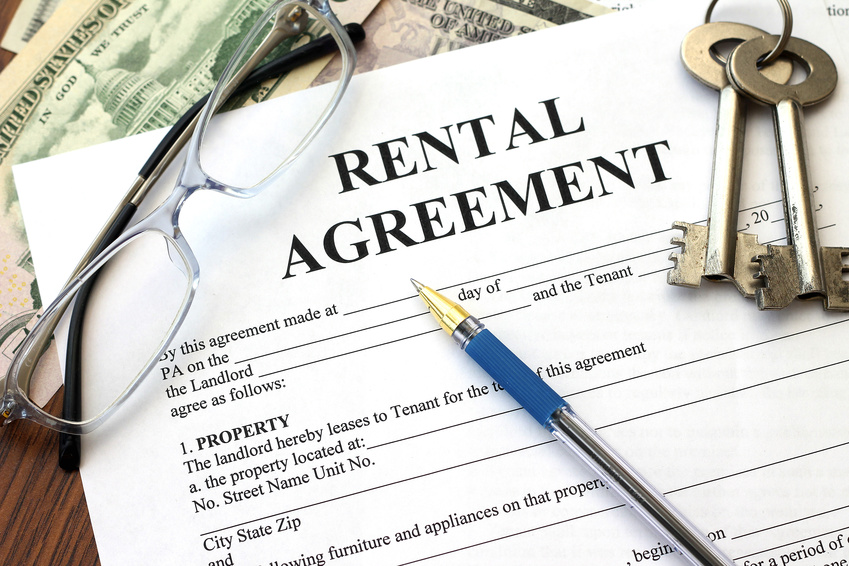America’s Best Landlord Tenant Lawyers
Landlord-tenant law governs the legal issues, rights and responsibilities of both landlords and tenants in rental agreements. It is a complex and multifaceted area of law that addresses various issues such as commercial leases, rent payments, property maintenance, evictions, and disputes resolution. Understanding landlord-tenant law is crucial for both landlords and tenants to protect their interests and ensure fair treatment.
On this overview page, we will delve into the intricacies of landlord-tenant law, exploring the rights and obligations of both parties, common disputes that arise, and the importance of seeking legal assistance from a top-rated tenant attorney near me. At Law Leaders, we are committed to connecting individuals with the best legal representation, ensuring that they receive expert guidance and advocacy in landlord-tenant matters.
Rights and Responsibilities of Landlords
Landlords have specific rights and responsibilities outlined by law to maintain a safe and habitable living environment for tenants. Some of the key obligations of landlords include:
- Providing a Safe and Habitable Property: Landlords are required to ensure that the rental property meets certain health and safety standards. This includes maintaining essential utilities such as heating, plumbing, and electricity, as well as addressing any hazardous conditions promptly.
- Respecting Tenant Privacy: Landlords must give tenants reasonable notice before entering the rental property for non-emergency purposes. Most states have laws specifying the notice period, typically ranging from 24 to 48 hours.
- Handling Security Deposits: Landlords are responsible for handling security deposits in accordance with state laws. This includes properly documenting the condition of the rental unit before and after the tenancy and returning the deposit within a specified timeframe after the tenant moves out.
- Enforcing Lease Terms: Landlords have the right to enforce the terms of the lease agreement, including collecting rent, addressing lease violations, and initiating eviction proceedings when necessary.
Rights and Responsibilities of Tenants
Tenants also have rights and responsibilities under landlord-tenant law to ensure a fair and mutually respectful rental relationship. Some of the key rights and obligations of tenants include:
- Paying Rent Timely: Tenants are obligated to pay rent on time as specified in the lease agreement. Failure to do so may result in late fees or other penalties outlined in the lease.
- Maintaining the Rental Property: Tenants are generally responsible for maintaining the rental property in a clean and sanitary condition. This includes minor repairs and upkeep tasks, such as changing light bulbs and replacing air filters.
- Reporting Maintenance Issues: Tenants have the right to request repairs for any maintenance issues that affect the habitability of the rental unit. Landlords are typically required to address these issues within a reasonable timeframe.
- Exercising Tenant Rights: Tenants have various legal rights, including the right to a safe and habitable living environment, the right to privacy, and protection against illegal residential eviction process or discrimination.
Common Landlord-Tenant Disputes
Despite efforts to maintain a harmonious rental relationship, disputes between landlords and tenants can arise for various reasons. Some of the most common disputes include:
- Non-Payment of Rent: One of the most frequent issues faced by landlords is tenants failing to pay rent on time. Unpaid rent can lead to eviction proceedings if not resolved promptly.
- Maintenance and Repairs: Disputes often arise regarding the responsibility for maintenance and repairs. Tenants may feel that landlords and property owners are neglecting their duty to maintain the property, while landlords may argue that tenants are not fulfilling their obligations to report issues promptly.
- Security Deposit Disputes: Disagreements over the return of security deposits are also common. Tenants may dispute deductions made by landlords for damages or cleaning fees, leading to potential legal action.
- Lease Violations: Violations of lease terms, such as unauthorized pets, subleasing, or excessive noise, can result in disputes between landlords and tenants. Resolving these issues may require legal intervention.
- Evictions: Landlords may seek to evict tenants or express evictions for various reasons, including unpaid rent, lease violations, breach of lease agreements, unauthorized lease termination, criminal activity, damage to property, the expiration of the lease term, or other rental issues. Eviction notice and proceedings, commercial evictions, and eviction trespass notices must comply with state laws and procedural requirements.
Why You Should Contact a Top-Rated Law Leaders Member Experienced Lawyer
Navigating landlord-tenant law can be challenging, particularly when disputes arise that require legal intervention. Seeking assistance from a knowledgeable and experienced attorney can make all the difference in achieving a favorable outcome. Here are some reasons why you should consider contacting a top-rated Law Leaders member attorney for help with your landlord-tenant issues:
- Expertise in Landlord-Tenant Law: A top-rated attorney and law firm specializing in landlord-tenant law will have a deep understanding of relevant statutes, regulations, and case law. They can provide informed guidance tailored to your specific situation.
- Effective Negotiation Skills: Resolving landlord-tenant disputes often requires effective negotiation skills to reach a mutually acceptable resolution. An experienced lawyer can advocate on your behalf and negotiate with the opposing party to achieve the best possible outcome.
- Representation in Legal Proceedings: In some cases, litigation and eviction lawsuits may be necessary to resolve landlord-tenant disputes, such as wrongful eviction proceedings, gender identity evictions, unlawful eviction, eviction trespass notice, personal injury claims, unlawful express evictions, housing discrimination claims, violation of eviction rule or eviction laws, or security deposit disputes. A skilled attorney can represent you in court, presenting your case persuasively and protecting your rights.
- Preventative Legal Advice: Consulting with an top rated landlord-tenant attorney proactively can help prevent disputes before they escalate. By reviewing lease agreements, advising on legal rights and obligations, and providing ongoing legal support, an attorney can help mitigate potential conflicts.
- Peace of Mind: Dealing with landlord-tenant issues can be stressful and overwhelming, especially if you are unfamiliar with the legal process. By enlisting the services of an experienced attorney, you can have peace of mind knowing that your case is in capable hands.
Landlord-tenant law is a complex and nuanced legal framework that governs the rights and responsibilities of both landlords and tenants in rental agreements. Understanding your legal rights and obligations is essential for maintaining a harmonious rental relationship and resolving disputes effectively.
Don’t navigate landlord-tenant issues alone. Contact a top-rated Law Leaders member real estate attorney today for comprehensive legal assistance tailored to your specific needs.
Contact Law Leaders Today
At Law Leaders, we are committed to connecting individuals with the best landlord tenant lawyers who specialize in landlord-tenant law. Whether you are a landlord dealing with eviction proceedings, express evictions, or eviction trespass notices or a tenant disputing security deposit deductions or wrongful evictions, our member experienced landlord lawyers can provide the expert guidance and advocacy you need to protect your interests and achieve a favorable outcome.
With a Law Leaders member attorney as your trusted partner, you can confidently navigate the intricate world of landlord-tenant law, knowing that you have experienced advocates working diligently to secure your rental property and renter rights and help resolve any challenges that may arise. Your landlord tenant success is our priority.
Contact us today to schedule a confidential consultation.
CALL: 1-800-LAW-LEADERS (1-800-529-5323)
SEARCH: For a landlord tenant lawyer in your area (CLICK HERE NOW)

FREQUENTLY ASKED QUESTIONS
What are the key rights and responsibilities of landlords and tenants?
Both landlords and tenants have specific legal obligations outlined by law. Landlords must provide a safe and habitable living environment, while tenants are responsible for paying rent on time and maintaining the property.
What are common reasons for landlord-tenant disputes?
Disputes often arise over issues such as non-payment of rent, maintenance and repair responsibilities, security deposit disputes, lease violations, and eviction proceedings.
What steps should I take if I have a landlord-tenant dispute?
If you have a dispute with your landlord or tenant, it’s essential to document the issue, communicate clearly and in writing, and seek legal advice from an experienced landlord tenant attorney specializing in landlord-tenant law.
How can I enforce my rights as a tenant?
Tenants can enforce their rights by familiarizing themselves with applicable landlord-tenant laws, documenting any violations or disputes, and seeking legal assistance to pursue remedies such as repair orders, rent withholding, or lease termination.
What are the legal requirements for evicting a tenant?
Landlords must follow specific legal procedures and requirements to evict a tenant, including providing notice of eviction, filing the necessary court documents, and obtaining a court order for eviction.
Can a landlord withhold a security deposit?
Landlords may withhold all or part of a tenant’s security deposit to cover damages beyond normal wear and tear, unpaid rent, or cleaning expenses. However, they must comply with state laws regarding security deposits and provide an itemized list of deductions.
What protections do tenants have against unlawful eviction?
Tenants have legal protections against unlawful eviction, including the right to receive proper notice and the opportunity to challenge the eviction in court if it is not justified under state law.
What are my options if my landlord refuses to make necessary repairs?
If a landlord fails to make necessary repairs that affect the habitability of the rental property, tenants may have legal remedies such as withholding rent, repairing and deducting costs, or pursuing legal action to compel the landlord to make repairs.
Can a tenant break a lease early?
Tenants may be able to break a lease early under certain circumstances, such as if the rental unit is uninhabitable, if the landlord breaches the lease agreement, or if there are legal grounds for termination specified in state law.
Do I need an attorney for landlord-tenant legal cases?
While not always required, seeking legal advice from an experienced landlord-tenant lawyer can be beneficial in navigating complex legal issues, protecting your rights, and achieving a favorable outcome in disputes or litigation.



 (800) 529-5323
(800) 529-5323



